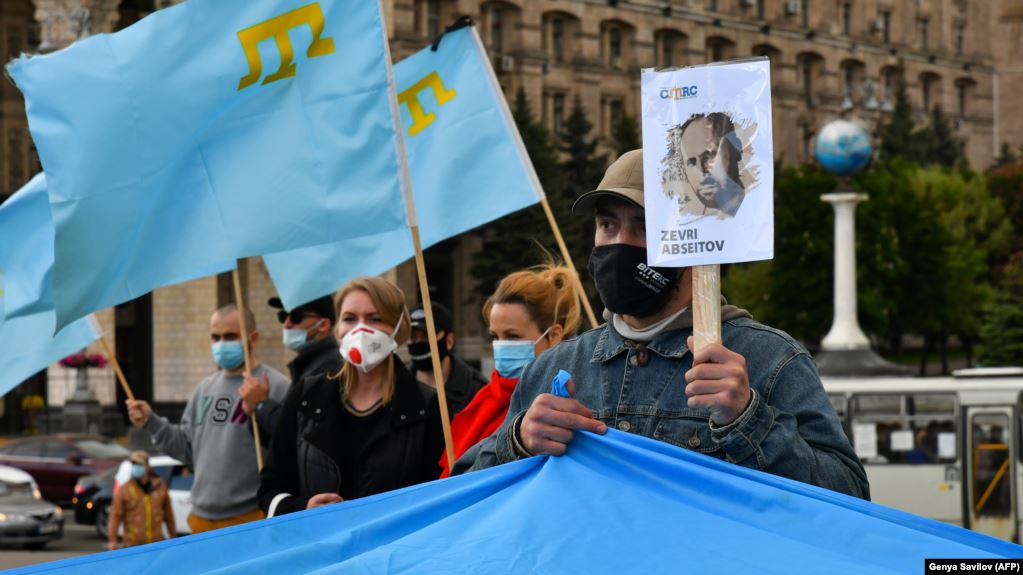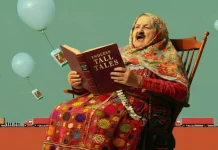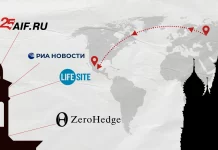
By Polygraph
Vladimir Zharikhin
Deputy Head of the Institute of CIS Countries
“This (claim about persecution of Crimean Tatars) once again confirms that in Ukraine the name of the presidenthas changed, but the regime that came power in Ukraine after the coup has not changed. The actions are the same, the policy is the same, which is based on outright falsification, outright distortion of facts, outright labeling without any attempt to confirm them with any evidence.”
Source: TASS, May 18, 2020
FALSE
May 18 is the annual Day of Remembrance for the victims of the Soviet Union’s mass deportation of Crimean Tatars (and other minorities) from the Crimean peninsula in 1944.
This year, the foreign ministers of Ukraine, Estonia, Latvia, Georgia, Lithuania, and Poland issued a joint statement on the 76th anniversary of the deportations. The ministers connected the Crimean Tatars’ treatment after 1944 with their treatment since Russia annexed Crimea in 2014.
“The tragedy of the Crimean Tatar people repeated in 2014, when the Russian Federation seized and illegally attempted to annex Crimea, which is an integral part of Ukraine,” the statement read.
“It is no coincidence that Russia, which glorifies Stalin’s totalitarian regime, continues its criminal policy in the 21st century in the temporarily occupied Crimea: ban [on] the Mejlis of the Crimean Tatar People, systemic repressions, persecution and violations of the rights of Crimean Tatars, who opposed Russia’s armed aggression against the territorial integrity of Ukraine. It forced thousands of Crimean Tatars, indigenous people of Crimea, to leave their homes and move to mainland Ukraine.”
The Russian state news agency TASS quoted a response to the declaration by Vladimir Zharikhin, deputy head of the Institute of CIS (Commonwealth of Independent States) countries, who said that the countries making the declaration were “unreasonably claiming that the rights of Crimean Tatars have allegedly been violated.”
“This once again confirms that in Ukraine the name of the presidenthas changed, but the regime that came power in Ukraine after the coup has not changed,” Zharikhin said, referring to Ukraine’s 2014 Maidan Revolution, which was not a coup, and the two Ukrainian presidents who have been elected since then.
He added: “The actions are the same, the policy is the same, which is based on outright falsification, outright distortion of facts, outright labeling without any attempt to confirm them with any evidence.”
Zharikhin’s claims about “outright falsification” and no attempts to confirm instances of repression are false.
Persecution of Crimean Tatars began when the Russian military moved to occupy and control the peninsula in late February 2014.
On March 16 of that year, the body of Crimean Tatar activist Reshat Ametov was discovered two weeks after he disappeared, with signs he had been tortured. Ametov had disappeared on March 3 after taking part in a demonstration against Russia’s occupation of the peninsula. There is video evidence suggesting he was abducted by men in unmarked Russian military uniforms.
By September 2014, Human Rights Watch documented seven cases of “enforced” disappearances in Crimea. Five of the victims were Crimean Tatars.
The Day of Remembrance on May 18, 2014, followed Russia’s formal annexation of the Crimean peninsula. Crimean Tatars found themselves under Moscow’s de facto control for the first time since 1991. Still, the Crimean Tatar community held its 2014 memorial march in defiance of a ban on public events by the occupying authorities.
The following year, the United Nations Office of the High Commissioner for Human Rights reported that 60 individuals who participated in an unsanctioned motorcade on May 18, 2015, were arrested, interrogated and fined. Authorities also tried to restrict celebration of the Crimean Tatar flag day on June 26.
An August 2014 report by the United Nations Office of the High Commissioner for Human Rights’ Special Rapporteur on Minority Issues noted that Crimean Tatars under Russian occupation had complained of “growing anti-Tatar sentiment.”
It quoted internally displaced Crimean Tatars who recounted incidents of physical and verbal abuse against members of their community during and after the annexation. Some reported that their houses had been marked or vandalized by unknown individuals, while others cited incidents of uniformed men trying to “claim” land and property from Tatar owners.
Since then, the Crimean Tatar community has seen a wave of persecution and mass arrests, often on dubious allegations of connections to a “terrorist” group. The group, Hizb-ut-Tahrir, was designated a terrorist group by Russia but is legal in Ukraine and many other countries. Many of the arrests of Tatars, typically carried out by Russia’s FSB (Federal Security Service), are based on unsubstantiated and vague accusations of connections to “terrorist” groups.
In 2016, Russia banned the Mejlis of the Crimean Tatar People, the highest representative and executive body of the Crimean Tatars, which was founded in 1991. Mustafa Dzhemilev, a Soviet-era dissident who is the leader of the Crimean Tatar national movement and former chairman of the Mejlis, was banned from entering Crimea in April 2014, barely a month after Russia annexed it.

In 2016, Russia issued an arrest warrant for Dzhemilev. A survivor of the 1944 deportations, Dzhemilev has effectively been banished from his homeland twice in his lifetime. Russia also issued an arrest warrant for Refat Chubarov, the Mejlis’ current chairman.
Such incidents show the accusations of repression targeting Crimean Tatars run counter to Zharikhin’s claims of falsification or distortion.
On May 18, this year’s Day of Remembrance, Sever Mustafayev, a Crimean Tatar activist, journalist, and Amnesty International-recognized prisoner of conscience, issued a statement from Russia, where he is currently imprisoned while on trial. During a court hearing that same day, some defendants held signs saying “May 18 Repeated” and “Free Prisoners of [the] Kremlin.”
“These so-called ‘trials’ on this somber date, for me personally, and for my people, is an indicator of the Russian Federation’s attitude to us, and of its generally formal words about our rights, about peace in Crimea, about justice and so forth,” Mustafayev’s statement read.
“Systematic pressure on the Crimean Tatar people, repression against Ukrainian citizens on religious and ethnic grounds; ethnic and political persecution of Crimean Tatars, of the Mejlis, of imams, human rights defenders, civic activists and journalists by the Russia authorities and enforcement agencies are deliberate policy of ethnocide of Crimeans and Crimean Tatars,” it continued.
The Crimean Tatars are a Turkic people who have inhabited the Crimean peninsula – and, at one time, parts of southern Ukraine – since the Middle Ages. During the Second World War, the Soviet government dubiously accused the ethnic group of collaboration with the Nazi occupier and deported them en masse to settlements in Central Asia, a fate shared by several other nationalities under Soviet control at the time.
In 2013, a film was released depicting the deportations as well as the exploits of Ahmet-Khan Sultan, a highly decorated Crimean Tatar fighter who witnessed the deportation of his own people in 1944. In 2016, Crimean Tatar singer Jamala won the Eurovision Song Contest for Ukraine with her song “1944,” about the deportations.
By Polygraph




